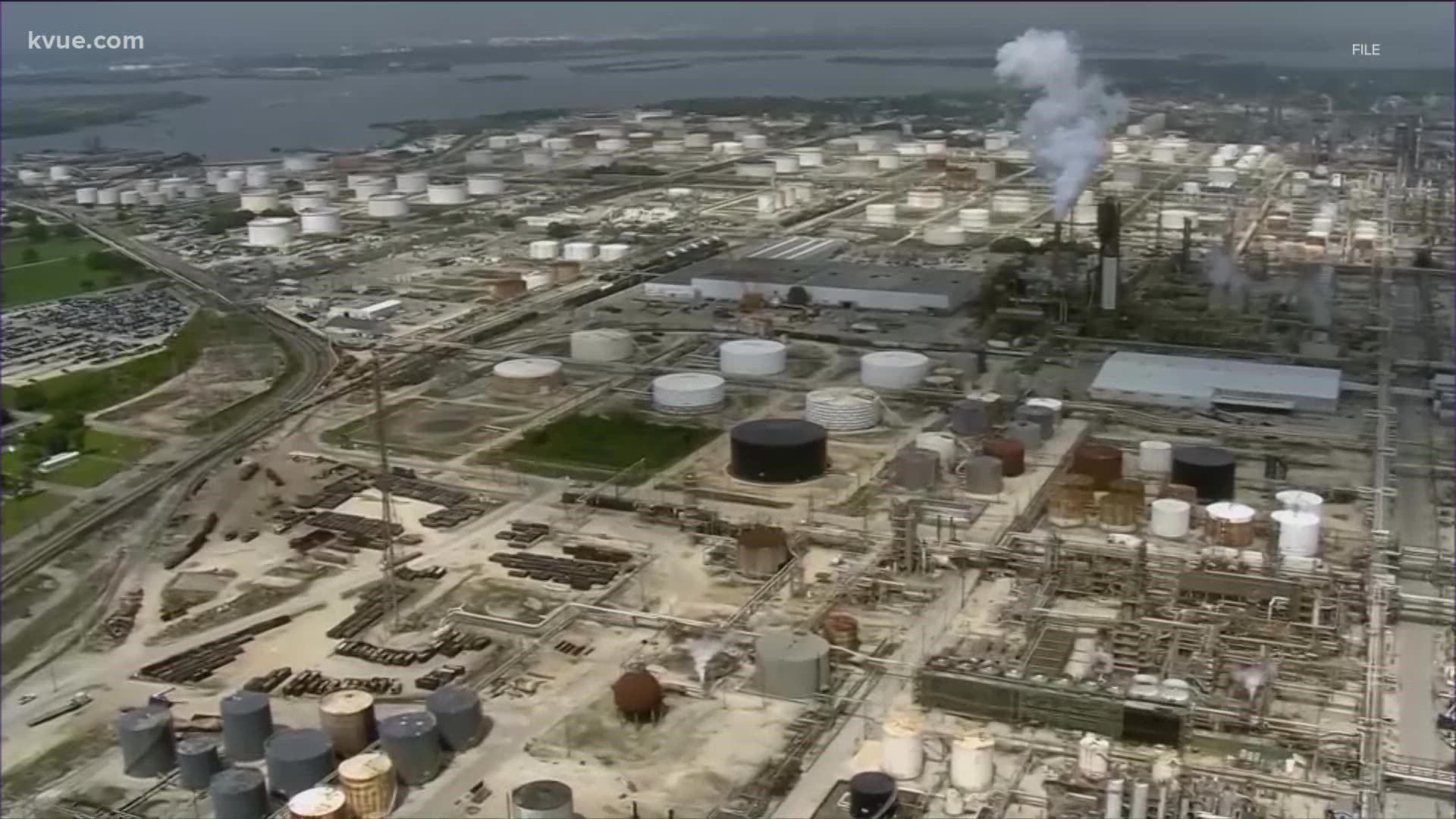AUSTIN, Texas — It’s an uphill battle.
Senate Bill 900, passed and signed into law, requires the Texas Commission on Environmental Quality (TCEQ) to create safety standards for above-ground petroleum storage tanks.
This law stemmed from a 2019 chemical fire in Deer Park, Texas. As the fire burned for days, schools shut down due to environmental concerns. People were told to stay home.
The Texas attorney general sued the company responsible. Harris County got $900,000 after settlement.
TCEQ’s future standards will be used to register, license and regulate 36,000 tanks in Texas.
SB 900, “requires TCEQ to create and enforce safety requirements to protect ground and surface water and mitigate potential safety hazards and minimize catastrophic incidents in the event of an accident or natural disaster. The program incorporates all critical safety elements from federal statutes, regulations and national consensus standards that are applicable and necessary to provide protection in the event of an incident. These include standards for the construction of new tanks and standards for existing tanks. The requirements include enhanced safety measures such as remote shut off valves, overfill prevention, and fire suppression,” the bill analysis shows.
Tuesday, the Texas House Committee on Environmental Regulation met to discuss updates to SB 900.
“Historically, sometimes, TCEQ has been under appropriated GRD (general revenue dedicated) funds that they have received and they have a strong majority of their funds are GRD. But we want to make sure those are appropriated because this program won't function properly if they don't have the funds that they are designated to have by industry paying those registration fees,” Sam Gammage, vice president and general counsel, Texas Chemical Council, said in the hearing.
Gammage told lawmakers that he wants to make sure the jobs are filled.
“We want those people employed, we want them in the regions and we want them to be able to do their jobs to get these tanks registered and inspected,” Gammage said.
The rules and enforcement will not happen fast. Businesses won’t be required to register until after Sept. 1, 2027.
At that time, TCEQ will begin enforcement, but the agency will need to hire 70 additional people in fiscal year 2027, according to the Legislative Budget Board’s Fiscal Note.
Fifty new hires will be environmental investigators, the note shows.
The KVUE Defenders found TCEQ has 34 job vacancies right now. Two of them are for environmental investigations.
Adrian Shelley with Public Citizen said the state needs to also consider rainfall in their rulemaking.
“It's pretty simple to understand. You've got a tank. It's got hydrocarbons in it. It's got a roof on top of it that is sitting right on top of those hydrocarbons. Right? And if above that roof, you get a really large volume of rain, say something like 55 inches or whatever that happened after Hurricane Harvey, it probably doesn't need to be that big, but huge volumes of rain. The roof cannot sit on top of the hydrocarbons anymore. The water is heavier. So it sinks or it flips or the whole tank ruptures. And this happened to nine companies during Harvey,” Shelley said in the hearing.
TCEQ will check compliance once every five years.
PEOPLE ARE ALSO READING:

